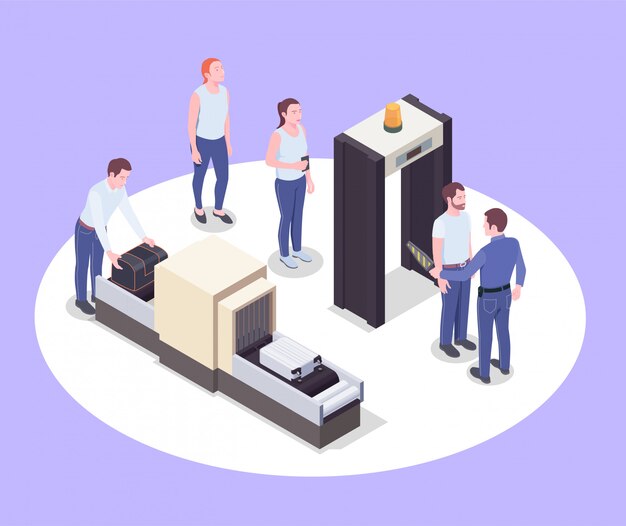Efficient Queue Management Systems in Pakistan: Transforming Service Delivery
Introduction
Long waits and disorganized queues have always been a common frustration for both businesses and customers. The solution? Queue management systems. In a fast-evolving world, technology has stepped in to offer more efficient and effective ways to handle customer flow. In countries like Pakistan, and more specifically in cities like Islamabad, these systems are proving to be game changers for businesses of all sizes. This article explores the significance, benefits, and trends of queue management systems in Pakistan and delves into the nuances of their implementation in Islamabad.
Understanding Queue Management Systems
A queue management system (QMS) is a set of tools and technologies designed to manage and streamline the flow of people. These systems optimize waiting lines and improve customer service experiences across various sectors, including healthcare, banking, retail, and government services.
Key Components of a Queue Management System
- Digital Signage: Displays to guide customers and show their queue status.
- Ticketing System: Provides numbered tickets to organize service order.
- Data Analytics: Collects and analyzes customer flow data for better management.
- Mobile Integration: Allows customers to join queues and receive updates through mobile apps.
- Feedback Mechanism: Enables gathering customer feedback to improve services.
Benefits of Using a Queue Management System
Implementing a queue management system offers numerous advantages:
- Reduced Wait Times: By efficiently managing queues, businesses can reduce customer wait times and improve overall satisfaction.
- Improved Customer Experience: A well-organized queue system makes the experience more pleasant for customers.
- Enhanced Staff Productivity: Employees can focus more on serving customers rather than managing queues.
- Data-Driven Decisions: With analytics, businesses can better understand peak times and customer behavior.
- Compliance with Health and Safety Regulations: Especially important post-pandemic, these systems help maintain social distancing and minimize contact.
Queue Management System in Islamabad
As Pakistan’s capital, Islamabad is a hub for government institutions, multinational corporations, and bustling retail centers. The demand for efficient service delivery has led to the widespread adoption of queue management systems across the city.
Applications of Queue Management Systems in Islamabad
- Government Offices: Managing large crowds for essential services, such as passport offices and municipal departments.
- Healthcare Facilities: Reducing wait times and improving patient flow in hospitals and clinics.
- Banking and Financial Institutions: Enhancing customer service by organizing teller lines and appointment systems.
- Retail Stores and Malls: Providing a seamless shopping experience by managing checkout and service queues.
Queue Management System in Pakistan
The adoption of queue management systems in Pakistan is on the rise, driven by the need for efficient service delivery and improved customer experience. From major cities to smaller towns, businesses are recognizing the importance of organized queues.
Why Queue Management Systems Are Crucial in Pakistan
- Growing Urbanization: With increasing population density in urban areas, managing queues has become essential.
- Technological Advancements: Pakistan’s tech-savvy younger generation demands modern solutions for traditional problems.
- Customer Expectations: With global exposure, Pakistani customers now expect higher standards of service.
- Health and Safety Concerns: Ensuring social distancing and minimizing contact have become priorities.
Implementing a Queue Management System in Your Business
Introducing a queue management system to your business requires careful planning and execution. Here’s how you can get started:
- Assess Your Needs: Determine the type of queue system that best suits your business.
- Choose the Right Technology: Consider factors like digital signage, mobile app integration, and data analytics.
- Train Your Staff: Ensure your employees know how to operate and manage the system efficiently.
- Monitor and Optimize: Continuously monitor performance and make improvements as needed.
Best Practices for Queue Management
- Use Clear Signage: Make sure customers know where to go and what to do.
- Provide Updates: Keep customers informed about their wait times through digital displays or mobile notifications.
- Offer Multiple Service Points: If possible, create multiple service points to speed up the process.
- Gather Feedback: Use feedback mechanisms to understand customer experience and make necessary adjustments.
Future Trends in Queue Management Systems
The future of queue management in Pakistan looks promising, with advancements in technology driving more sophisticated solutions. Here are some trends to watch:
- Artificial Intelligence and Machine Learning: These technologies will help predict peak times and optimize staff allocation.
- IoT Integration: Internet of Things (IoT) devices will improve communication between different components of the queue system.
- Virtual Queuing: Mobile apps will enable customers to join queues remotely and arrive just in time for their turn.
- Personalization: Businesses will use data to offer personalized services, making the queue experience more tailored to individual needs.
- Cloud-Based Systems: More businesses will adopt cloud-based queue management systems for scalability and ease of use.
Conclusion
Queue management systems are transforming how businesses and institutions operate in Pakistan. From reducing wait times to enhancing customer satisfaction, the benefits are undeniable. As Islamabad and other cities continue to grow, the adoption of these systems will become even more widespread. Businesses that invest in modern queue management solutions will be well-positioned to meet the demands of their customers and stay ahead of the competition.
FAQs
- What is a queue management system? A queue management system is a set of tools and technologies designed to streamline customer flow and reduce wait times in various service environments.
- Why are queue management systems important for businesses in Pakistan? They are important because they improve customer satisfaction, enhance staff productivity, and ensure compliance with health and safety regulations.
- How does a queue management system work? It works by organizing customers through ticketing systems, digital signage, and mobile apps, while providing data analytics to optimize service delivery.
- Where are queue management systems commonly used in Islamabad? They are used in government offices, hospitals, banks, retail stores, and other places where large crowds need to be managed efficiently.
- Can small businesses benefit from a queue management system? Yes, small businesses can benefit greatly by improving customer experience and making their operations more efficient.














Post Comment